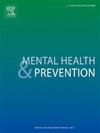Prison-based psychological and social interventions to improve the well-being of women prisoners: A systematic review
IF 2.4
Q2 Medicine
引用次数: 0
Abstract
Objective
Women prisoners face numerous psychological and social challenges during imprisonment. This systematic review evaluates prison-based psychological and social interventions designed to enhance the well-being of women prisoners.
Methods
This systematic review followed Preferred Reporting Items for Systematic Reviews and Meta-Analysis (PRISMA) guidelines and searched across four databases: Scopus, Sage, Web of Science, and PubMed, covering studies from 1st January 1992 to 20th October 2024. The inclusion criteria were randomised controlled trial (RCT) or quasi experimental design research involving women prisoners over 18 in prison settings, targeting psychological or social outcomes, with pre- and post-intervention results, and published in English. The exclusion criteria were case studies, pilot studies, non-prison settings, mixed gender samples without separate women analysis, mental disorders focused research, medication-only treatments, unclear intervention details, post-intervention-only outcomes, studies on recidivism or substance relapse, grey literature, and non-English publications. The mixed methods appraisal tool (MMAT) was used to evaluate risk of bias, and a narrative synthesis was conducted due to data heterogeneity.
Results
Out of 8233 documents, 15 studies examining psychological and social interventions were included. Behavioural methods effectively managed anger, dog-assisted interventions provided emotional support, transactional analysis and reality therapy enhanced self-esteem and self-efficacy, logotherapy boosted hope, video-based learning fostered inner peace, and Choice Theory Connections supported overall well-being among women prisoners. Effective parenting interventions incorporated parenting education, curriculum with children, and sufficient duration of programme.
Conclusion
The review's limitations include high attrition rates due to prison rules and regulations, non-randomised comparison studies, and reliance on self-report measures.
以监狱为基础的改善女囚犯福利的心理和社会干预:系统回顾
女性囚犯在监禁期间面临许多心理和社会挑战。这项系统审查评估了旨在提高女囚犯福利的监狱心理和社会干预措施。方法本系统综述遵循PRISMA (Preferred Reporting Items for systematic Reviews and Meta-Analysis)指南,检索Scopus、Sage、Web of Science和PubMed四个数据库,涵盖1992年1月1日至2024年10月20日的研究。纳入标准为随机对照试验(RCT)或准实验设计研究,涉及18岁以上监狱环境中的女性囚犯,目标是心理或社会结果,干预前和干预后的结果,并以英文发表。排除标准为案例研究、试点研究、非监狱环境、没有单独女性分析的混合性别样本、以精神障碍为重点的研究、仅限药物治疗、不明确的干预细节、仅限干预后的结果、关于累犯或药物复发的研究、灰色文献和非英语出版物。采用混合方法评价工具(MMAT)评价偏倚风险,并因数据异质性进行叙述性综合。结果在8233份文献中,纳入了15项心理和社会干预研究。行为方法有效地控制了愤怒,狗辅助干预提供了情感支持,交易分析和现实疗法增强了自尊和自我效能,意义疗法增强了希望,基于视频的学习促进了内心的平静,选择理论联系支持了女性囚犯的整体幸福感。有效的父母干预措施包括父母教育、儿童课程和足够的课程时间。结论该综述的局限性包括监狱规章制度、非随机比较研究以及依赖自我报告方法导致的高流失率。
本文章由计算机程序翻译,如有差异,请以英文原文为准。
求助全文
约1分钟内获得全文
求助全文
来源期刊

Mental Health and Prevention
Medicine-Psychiatry and Mental Health
CiteScore
2.10
自引率
0.00%
发文量
22
审稿时长
24 days
 求助内容:
求助内容: 应助结果提醒方式:
应助结果提醒方式:


